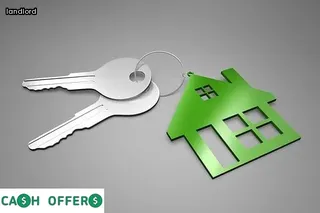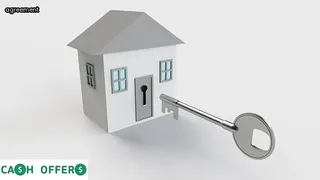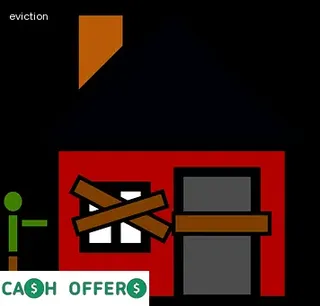Wisconsin tenants have a range of rights and responsibilities to understand in order to prevent property damage. Tenants are responsible for maintaining their rental unit, abiding by all state and local laws, and paying rent in full and on time.
Landlords must provide tenants with habitable living conditions that meet all health, safety, housing codes, as well as informing tenants of any changes or repairs that need to be made. Tenants are also entitled to privacy and may not be evicted without proper notification or cause.
If the landlord fails to maintain the property or make necessary repairs, Wisconsin law allows the tenant to take legal action against the landlord. In such cases, the tenant can withhold rent until the issue is resolved or sue for damages.
It is important for both landlords and tenants to understand Wisconsin's landlord-tenant laws in order to protect themselves from potential disputes or costly legal action.

Under Wisconsin law, landlords are expected to properly maintain their rental properties, including all of the units and common areas. This includes making repairs in a timely manner when necessary.
Landlords must ensure that roofs, floors, walls, windows, and doors are structurally sound and watertight. They must also make sure that plumbing and electrical systems are up to code and safe to use.
Appliances such as stoves, refrigerators, washers, dryers, heaters, air conditioners and other equipment must be in working order in order for the tenant to be able to enjoy full use of the premises. Furthermore, landlords must keep all areas clean and free from health hazards or safety issues.
If any repair needs arise during a tenant's lease agreement period or during the duration of their occupancy of the unit, Wisconsin law requires that the landlord address these problems promptly with any needed repairs.
In Wisconsin, tenants are responsible for completing minor repairs to their rental property. This includes things like unclogging drains, changing light bulbs, and painting walls.
Tenants are also responsible for maintaining the cleanliness of the premises and may be liable for any damage caused by their failure to do so. It is important for tenants in Wisconsin to understand their repair requirements in order to prevent property damage and avoid potential legal disputes with landlords.
The state's landlord-tenant laws provide clear guidelines regarding the tenant’s responsibility in making necessary repairs. Tenants must make reasonable attempts to keep their rental unit in good condition and take prompt action when repairs are needed.
They should also inform their landlord of any maintenance or repair issues they encounter as soon as possible. Tenants should also remember that they cannot make changes or improvements to a rental unit without the landlord’s permission, as this could result in fines or other legal penalties.
Understanding Wisconsin's landlord-tenant laws is essential for tenants who want to ensure that their rental property remains safe and undamaged during their tenancy.

Wisconsin landlords are responsible for ensuring that all tenants have access to essential utility services, such as electricity, water, and gas. Landlords must provide the necessary utilities to keep their rental property in good condition and protect their tenant's safety.
Wisconsin law requires landlords to make sure their rental properties have working utilities and maintain them in a safe condition. It is important for both landlords and tenants to understand the state’s landlord-tenant laws regarding utility services so they can take steps to prevent property damage from occurring.
There are several utility providers in Wisconsin that landlords can contact for help with setting up and maintaining essential services. These include electric companies, natural gas suppliers, water companies, and sewer systems.
Additionally, many townships or counties may offer public works departments that can assist with any questions about utilities or provide additional resources for obtaining necessary services. By understanding these available options, landlords can ensure that their rental property has all of the necessary utilities in order to meet legal requirements and avoid costly damages.
Building inspections are regularly conducted to ensure that landlords and tenants alike are adhering to the standards set forth in Wisconsin's landlord-tenant laws. These inspections can help prevent potential property damage by verifying that all parties are following the appropriate regulations.
As part of an inspection, professional evaluators will assess the condition of the rental property, review lease agreements, and investigate any complaints lodged against either the tenant or landlord. It is essential for landlords to understand their obligations under state law, including providing safe and habitable living conditions for tenants.
Furthermore, tenants must be aware of their rights when it comes to any repairs necessary for their unit. By properly understanding Wisconsin's landlord-tenant laws, both parties can avoid costly damages caused by neglect or misunderstanding of these regulations.

In Wisconsin, it is important for landlords to ensure that tenants complete a comprehensive application before deciding to enter into a rental agreement. The application should include details such as the potential tenant's full name, address, phone number, and employment information.
Additionally, landlords may choose to ask for references or proof of income. It is also important to explain the tenant's rights and responsibilities in relation to the property.
This includes covering topics such as proper maintenance of the premises, payment of rent and utilities on time each month, and any applicable rules regarding pet ownership or other activities that are allowed in the dwelling. Understanding these documents can help protect both parties from potential damage to the rental property and ensure that all expectations are met before entering into a long-term lease agreement.
Leasing an apartment or other property in Wisconsin is a serious legal matter, so it's important to understand the state's landlord-tenant laws to protect yourself from potential property damage. Drafting your own lease agreement can help you avoid potential issues and clearly define the terms of the rental agreement.
When crafting a lease agreement, it's important to include all relevant information such as start and end dates, rent amount, security deposit requirements, rules for late payments and any special conditions. Additionally, you should specify what type of property damage is covered under the agreement and who is responsible for repairs.
Be sure to draft a legally binding document that complies with Wisconsin law in order to protect both parties involved in the lease agreement.

When renting a property in Wisconsin, tenants should be aware of security deposit laws. Landlords are allowed to request a security deposit from tenants, which must be used exclusively for the purpose of restoring any damages that occur as a result of tenant neglect.
Security deposits must not exceed an amount equal to two months' rent and must be returned to the tenant within 21 days after they move out. Landlords are required to notify tenants in writing within 14 days of their move-in date regarding the amount of the deposit, the recipient's name, and address.
Furthermore, landlords must hold tenants' security deposits in an interest-bearing account at a banking institution located in Wisconsin. If interest is earned on the security deposit, such interest must be paid to the tenant annually or applied towards rent due.
Lastly, if no damages have occurred as a result of tenant neglect and all rent has been paid in full, landlords are obligated to return all security deposits to tenants within 21 days after they vacate the premises.
When entering into a lease agreement, it is important for both tenants and landlords to understand Wisconsin's landlord-tenant laws in order to ensure property maintenance during the term of the lease. Regular property maintenance is key to preventing any damage from occurring which can be costly for both parties.
Landlords are generally responsible for providing a safe and habitable living space for their tenants and should make sure that all necessary repairs are made promptly. Tenants, on the other hand, should be aware of their responsibilities and obligations under the lease agreement such as regularly cleaning and maintaining the property, notifying landlords of any issues, and refraining from causing intentional damage or destruction to the premises.
Both parties must abide by these rules in order to establish a successful relationship between tenant and landlord while also preserving the condition of the property.

In Wisconsin, there is a clear understanding of the rights and obligations of both landlords and tenants when it comes to access to property. Landlords have the right to enter the property in order to inspect, repair or maintain it, but they must give tenants 24 hours’ notice before doing so.
Tenants also have the responsibility to allow such access, though they may also be able to limit it by making arrangements with their landlord. Landlords are not allowed to take away or restrict access that was granted in a lease agreement without following proper legal procedure.
Tenants can also request repairs or maintenance if necessary and the landlord must comply. It is important for landlords and tenants alike to be aware of these laws and regulations in order to ensure that all parties are protected from potential property damage.
Subletting Regulations for Tenants in Wisconsin are important for both the tenant and the landlord to understand in order to prevent property damage. Before subletting, tenants must have written permission from the landlord that outlines any associated fees or charges, as well as a list of other restrictions.
In most cases, a tenant may not sublet without this permission. Additionally, the tenant is responsible for ensuring that any new roommate meets all qualifications outlined by the landlord such as being of legal age and having an acceptable credit score.
If the tenant fails to meet these requirements they could be held liable for any damages caused by a new roommate. Furthermore, it's important to note that if a tenant is considering subletting their property without permission, they can be evicted under Wisconsin law.
Understanding these regulations can help protect both tenants and landlords from potential property damage when subletting in Wisconsin.

In Wisconsin, the termination of tenancy rules are set by state law and include provisions for both landlords and tenants. Landlords must provide notice of termination at least 28 days prior to the end of a rental period, unless the tenant has violated the lease agreement.
If that is the case, the landlord can provide notice as soon as possible after discovering the violation. Tenants have similar obligations and must give written notice of intent to vacate at least 28 days before the end of their lease or rental agreement.
If they fail to do so, they may be held responsible for additional rent until a new tenant is found. This notice must be given in writing and delivered either personally or through certified mail.
The landlord may also choose to terminate tenancy if rent is not paid on time or if there are other violations of the lease agreement, such as subletting without permission or causing damage to property. In these cases, appropriate legal notices must be provided in accordance with state laws before any action can be taken against a tenant's property.
Abandonment of rented property by a tenant is a serious issue for landlords in Wisconsin and is governed by state statutes. In order for the landlord to be able to consider the tenant to have abandoned the property, there must be certain evidence that proves the tenant has left with no intent of returning.
A tenant may be found to have abandoned the premises if they are absent from the rental unit for 28 consecutive days or more without rent being paid and without prior notice from the tenant. Additionally, if all of the tenant's belongings are removed from the premises, this is also considered an abandonment, as well as if a utility meter is disconnected or mail sent to that address is returned unclaimed.
Landlords must take appropriate action such as following notification procedures when dealing with abandonment of property by a tenant, and it is important for both parties to understand their rights and responsibilities under state law.

In Wisconsin, tenants are liable for damages to rental property caused by their negligence or intentional misconduct. Tenants may also be held responsible if they fail to abide by the terms of their lease agreement or if they damage the rental property beyond normal wear and tear.
Landlords should make sure that prior to entering a tenancy, a tenant is made aware of their obligations under the law and any additional clauses in the lease that might provide additional protection from property damage. If a tenant does cause damage, it is important for landlords to act promptly in order to prevent further destruction and to limit their liability.
In some cases, landlords might be able to hold tenants financially responsible or even pursue legal action against them. It’s essential for landlords in Wisconsin to understand their rights and responsibilities when it comes to protecting their rental property from damages caused by tenants.
Eviction is a process that can be initiated by either the landlord or tenant in Wisconsin. A landlord may begin the eviction process if a tenant fails to meet their obligations such as paying rent on time, violating the lease agreement, or engaging in illegal activity on the property.
On the other hand, tenants may initiate an eviction if a landlord fails to provide essential services or violates their legal rights as a tenant. In either case, proper notice must be given to the other party and the state of Wisconsin has specific rules for when and how this notice should be provided.
After notice is given, there are certain court procedures that must be followed in order for an eviction to take place. For example, landlords must file an eviction complaint with their local courthouse and tenants have the right to appear in court and explain why they should not be evicted.
Ultimately, understanding Wisconsin's landlord-tenant laws can help both parties prevent property damage by ensuring that all necessary steps are taken during an eviction process.

Landlords in Wisconsin must abide by specific state laws that govern the rental relationship between landlords and tenants. These laws are designed to protect both parties and ensure a safe living environment for renters.
Wisconsin's landlord-tenant laws require that rental properties meet certain standards of habitability, which includes providing adequate lighting and ventilation, maintaining plumbing and electrical systems, making sure smoke detectors and carbon monoxide detectors are installed and working, installing window screens on windows that open directly to the outside, supplying hot and cold running water, supplying heat during the winter months, disposing of garbage in a sanitary manner, providing proper mail service, having operable locks on all doors leading to the exterior of the home or unit, and keeping common areas free from debris or other hazards. All of these requirements help to create a safe living environment for tenants.
In addition to these standards of habitability, landlords must also provide renters with information about their rights regarding lead paint disclosure, security deposits, rent increases or decreases due to code violations, termination of tenancy notices in accordance with the law, access to emergency services such as police or fire protection when needed or requested by the tenant. Understanding Wisconsin's Landlord-Tenant Laws is essential for landlords in order to prevent property damage; knowing what is required of them can help ensure a safe living space for tenants.
Wisconsin is one of the few states that has its own set of landlord-tenant laws and fair housing protections in place. All tenants renting residential property are protected by these laws, which include rules about security deposits, rent increases, eviction notices, and more.
The state's Fair Housing Law prohibits landlords from discriminating against tenants on the basis of race, religion, origin, color, sex, disability status or any other protected class. Tenants also have a right to privacy and protections from unreasonable entry into their rented units by their landlords.
Landlords must provide tenants with proper notice before entering their unit and cannot make entry during certain times unless there is an emergency situation that requires immediate attention. Additionally, Wisconsin law requires landlords to maintain rental properties in a safe and habitable condition so as to prevent potential damage to the premises.
Property owners must keep all common areas safe for all tenants by providing necessary repairs and maintenance in a timely manner. Tenants should be aware of their rights under these laws so they can take steps to protect themselves against any possible property damage or other violations of state law while renting their home.

Late payment penalties are an important aspect of Wisconsin's landlord-tenant laws to be aware of because they can help reduce the risk of property damage. Landlords have the right to impose late fees if a tenant fails to pay rent on time, and in turn, tenants have the right to be informed in advance of any applicable late fees.
Furthermore, landlords must provide tenants with written notice when instituting such fees. As far as the actual amount of late fees goes, it is up to both parties to mutually agree upon a fee that is reasonable and proportional to the amount of rent due.
In addition, landlords should ensure that their late payment policies comply with state laws regarding maximum fee amounts, frequency at which fees can be assessed, and other legal requirements. It is also important for renters to understand their rights when it comes to late payments so they can take steps to avoid being charged late fees or facing eviction for failing to pay rent on time.
In Wisconsin, it is the responsibility of both landlords and tenants to keep accurate records of rental agreements, repair requests, payments and other important documentation related to tenancy. Landlords must maintain records of all written rental agreements, including copies of all addendums and amendments that are signed by both parties.
Tenants need to have proof of rent payments in case a dispute arises over payment amounts or late fees. Renters should also record any communication with their landlords regarding repairs or maintenance issues, such as dates and times when they contacted them about the problem.
Landlords must document any inspections they make on a tenant’s unit and keep copies of any notices they send informing tenants about changes in policy or lease agreements. Keeping these records can help prevent property damage disputes between landlords and tenants by providing evidence if a disagreement arises later.
Wisconsin state statute 704.07 states that a tenant must use reasonable care to prevent damage to the landlord's property from occurring.
This includes notifying the landlord of any damage that does occur, and preventing further damage from happening if possible. If the tenant fails in these obligations, then he or she may be held liable for any resulting damage to the property.
Landlords are also responsible for ensuring that the leased premises are fit for occupancy and free from any defects which can lead to property damage. In addition, landlords must protect tenants from hazards on their property, and make sure necessary repairs are completed promptly in order to prevent potential property damage from occurring.
By understanding Wisconsin's landlord-tenant laws, both tenants and landlords can work together to ensure that rental properties remain safe and secure.

In Wisconsin, the time limit for a landlord to sue for damages is three years from the date of discovery of the property damage. The suit must be filed in the circuit court where the rental property is located.
A tenant must be served with a summons within sixty days and has twenty days to respond or else a default judgment may be entered against them. Landlords should take note that this statute does not apply to damages that occurred more than three years ago; any claims arising from such damage will have been barred by the statute of limitations.
Additionally, if a tenant has committed intentional or malicious acts of destruction, the landlord may seek punitive damages as part of their lawsuit. It's important for landlords to understand Wisconsin's landlord-tenant laws and specifically how long they have to sue for property damage in order to protect their financial interests and ensure that tenants are held accountable for any destruction they cause on their rental properties.
In Wisconsin, landlords are prohibited from engaging in certain activities that could potentially cause property damage. Landlords cannot enter a tenant's dwelling without written notice and the tenant's consent, nor can they lock out tenants or remove their possessions.
Landlords are also prohibited from disrupting essential services to tenants such as electricity, water, heat, or other essential services. Furthermore, landlords cannot retaliate against tenants who exercise their rights under the law by increasing rent or evicting them.
Lastly, landlords must maintain the rental property in a habitable condition and are responsible for making all necessary repairs to keep it in good condition. Understanding these landlord-tenant laws is crucial for preventing property damage in Wisconsin.
In Wisconsin, a landlord has the right to deduct from a security deposit for property damage caused by the tenant that goes beyond normal wear and tear. The landlord must provide an itemized list of damages, along with the costs associated with each damage, and return the remainder of the security deposit to the tenant within 21 days.
A landlord may also use a security deposit to cover unpaid rent or fees as long as they are authorized in the lease agreement. Landlords should also be aware of any additional restrictions on deductions imposed by local laws or ordinances.
If a tenant fails to pay rent or fees and causes damage to the property, landlords should document all damages and costs associated with repairs before deducting them from the security deposit. By understanding Wisconsin's landlord-tenant laws, landlords can ensure they are properly using security deposits to cover property damage while adhering to state regulations.
A: In Wisconsin, the Lessee is ultimately responsible for any damage to the property caused by their Sublessee and must repair or compensate the Landlord or Lessor for any such damage.
A: In Wisconsin, if a tenant causes substantial damage to the landlord's property, the landlord may issue a notice of termination without specifying any reason for the eviction. The tenant must then vacate the premises within 28 days of receiving this notice. The damages must exceed an amount equal to one month's rent for the tenant to be evicted without cause.
A: Depending on the severity of the crime and damage caused, a tenant in Wisconsin who is found guilty of engaging in criminal activities that cause damage to property may face fines and/or jail time. In addition, they may be held financially responsible for any costs incurred to repair or replace damaged property.
A: In Wisconsin, when a Sublessee causes damage to property owned by a Lessor, the Lessee (the person who signed the lease agreement) is responsible for paying for any resulting damages. If the Lessee does not pay, then the Lessor may be able to pursue a Statutory Lien against the tenant's security deposit or other personal property.
A: The Lessee in Wisconsin is responsible for any damage caused to the property by a Sublessee, and they may seek compensation from the Lessee for any such damage in terms of Money or Consumer Credit up to the Rental Value amount stated on their CHECK-IN.
A: The Lessee may be liable for any damages resulting from the negligent act of allowing a Sublessee to cause damage or personal injury under Wisconsin's Consumer Protection Act.
A: The Lessee is primarily responsible for any damage done to the property by their Sublessee, and must use their Security Deposit to cover any damages. The Lessee is also liable for any unpaid rent or other fees associated with the damage. The Lessee may not increase Rent in response to the damage, nor can they initiate an Eviction Process against the Sublessee for this reason. Instead, it is up to the Lessee to make all necessary Repairs and Maintenance required as a result of the damage.